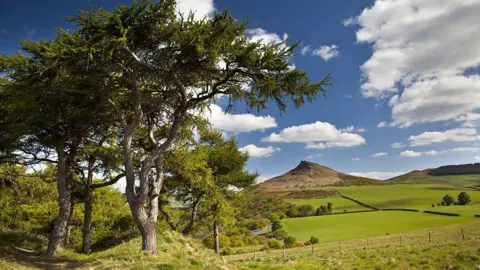Green corridors 'will connect people with nature'
 Getty Images
Getty ImagesThree newly designated "green corridors" in north-east England are aiming to connect town and city-dwellers with nature.
The routes in Gateshead, Durham and Teesside have been named by the National Trust as part of plans to create 20 such spaces across England, Northern Ireland and Wales by the start of the next decade.
The conservation charity says it is looking to "end unequal access to nature, beauty and history".
It has partnered with a number of organisations, including Newcastle, Northumbria, Durham and Teesside universities, after securing £2.9m from the Arts and Humanities Research Council.
Gateshead's nine-mile (14km) Tyne Derwent Way trail, which connects historic sites along the River Tyne, is one of the three areas named.
A second route stretches along the River Wear from Durham city centre to Crook Hall Gardens, taking in Brasside Ponds, Low Newton Junction Nature Reserve and heritage sites such as Finchale Priory.
Teesside's corridor runs from Middlesbrough and the Tees Estuary to the North York Moors National Park and Roseberry Topping.
It will also link to existing long-distance walks in the area, such as the Weardale Way.
Helen Moir, the trust's senior urban programme manager (North East), said the organisation was looking at "new and inspiring ways of engaging with communities - ensuring our local green corridors, and their culture and heritage, thrive".

Prof Richard Clay, of Newcastle University, is among researchers who will be conducting work to monitor the impact of green spaces on health and wellbeing.
He described the corridors as a "glorious" way to help people make the most of the nature on their doorstep.
"We know it is incredibly important for our well-being. It lifts us.
"This shows that even if someone lives in an urban area, they can get out into amazing spaces nearby.
"There are so many stories that we can tell through these kind of projects. The Tyne Derwent Way runs past the Metrocentre, which very few people realise is built on the site of two gas power stations that were leading-edge technology at the time.
"And we all talk about coal, but if we go further back, there were windmills on the hills in Gateshead.
"You could say the future will look a lot like the past in that it's going to be green rather than coal and gas."
